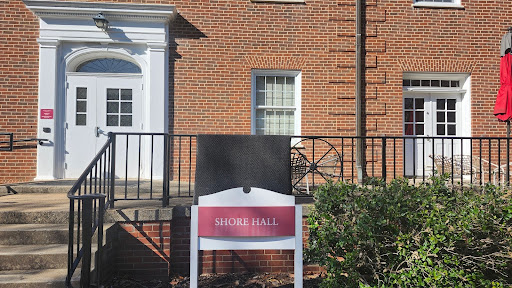“I was beat really badly by like four-foot-seven women in dresses,” said junior Chloe Weiner.
You would probably never guess that Weiner is talking about her experience studying abroad in Mexico, where she lived and played basketball with autonomous communities around the country.
On Wednesday, March 6, three study abroad students who studied in Mexico with the Mexico Solidarity Network talked about their experiences with this unique program.
Seniors Gabrielle Lahowitch, junior Chloe Weiner and senior Hallie Dowling-Huppert, who all participated in the past two years, talked about their experiences with the program.
According to the Mexico Solidarity Network’s website, they “created this unique study abroad program in 2005 to introduce students to dynamic new experiments in autonomous, community-based organizing and to build solidarity with Mexico’s most important and dynamic social movements.”
The study abroad program has three stations in Chiapas, Tlaxcala and Mexico City where students work in self-governing communities.
The Mexico Solidarity Network is a group that was based in Chicago and works with autonomous communities in Mexico who are working for equal rights or autonomous rights,” said Dowling-Huppert. “Many of the people are seeking to evade oppression from the government.”
“The first place we went to was Chiapas,” said Lahowitch. “The first week, we went to a school for the indigenous that focuses on self-sufficiency with trades, and that was really interesting. The next four weeks were spent in Oventic, which is where the Zapatistas live.”
The Zapatistas are a revolutionary, self-governing group. Zapatistas, made up of mostly people of Mayan ancestry, declared their autonomy from the Mexican State in response to NAFTA on Jan. 1, 1994.
“Students learn about the Zapatistas’ community,” said Assistant Director of Study Abroad Daniel Diaz. “They learn about the history of the culture. They learn about the different kinds of people and leaders. They learn about this idea of what it takes to build a grass roots community.”
The Zapatistas have received funds from programs like MSN in the past.
“They were able to do this because of the support from MSN and solidarity with other groups,” said Lahowitch. “Funding for health care and schools was possible because of the international groups.”
The next stop for students on the MSN trip was Tlaxcala.
“I stayed with a family who had 12 kids,” said Dowling-Huppert. “This family was focused on social justice and very committed to the cause. Every member of the family was committed to the cause, which was fascinating. The Tlaxcala part was where I felt most immersed into Mexican culture.”
The students also learned from inspiring adults.
“We have access to these people who are doing so much in their communities through the Mexico Solidarity Program,” said Weiner. “There’s no other way that I would have been able to meet these kinds of people without the program.”
In the final stop in Mexico City, students worked with another autonomous community fighting for housing rights.
“Everybody takes part in building the community,” said Weiner. “The people who show the most commitment and work the hardest get rewarded with a house. You pay like 15 percent of your income for housing. Many people in Mexico City do not make a living wage, and this makes a huge difference in people’s lives. A family was kicked out because they were not doing their part in the community.”
The MSN technically ends in Mexico City, but a trip to Chicago, where the program is based, is encouraged. Chicago is the place where students take what they have learned in Mexico and apply it in the States.
“We did a lot of anti-foreclosure stuff,” said Lahowitch. “We protested a bank.”
In addition to their work with the autonomous communities, students’ tuition also goes to the MSN when they participate in the study abroad program.
“You’re learning what organizing in immigrant communities looks like here and how to apply what you learned in Mexico to the United States, which was incredible,” said Dowling-Huppert. “It all comes together.”











